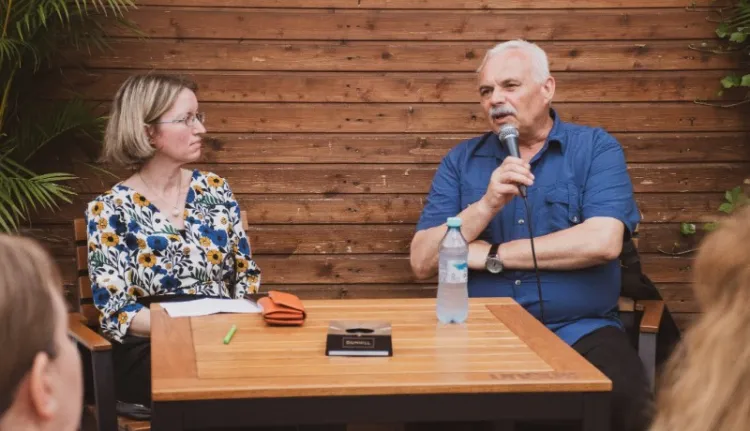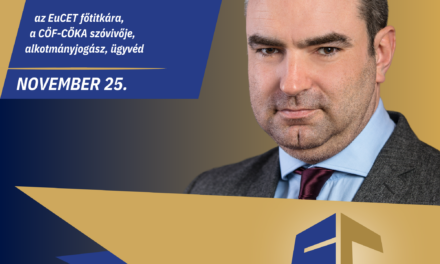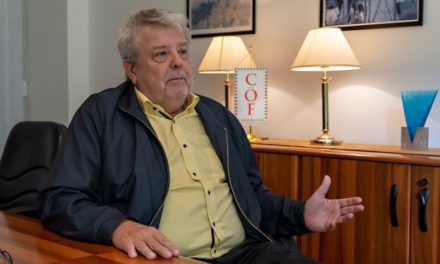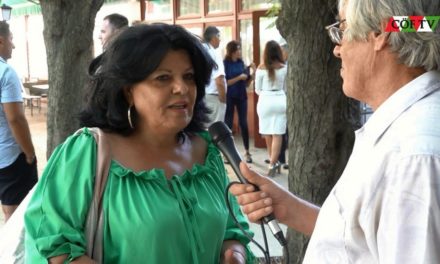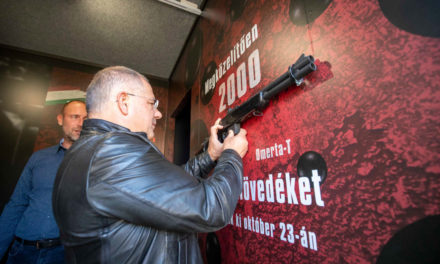It was created by university lecturers, high school teachers, researchers, and journalists with the aim of serving the cause of the different national communities living together in Bánság in the moral, professional and social spheres.
On September 24, 2023, we celebrated the 30th anniversary of the foundation of the Szórvány Foundation as part of the Hungarian Days in Timișoara. On this occasion, a festive meeting and professional discussion took place. In the framework of the festive meeting, representatives of the Foundation, partner organizations, local and national authorities and supporting organizations recalled and evaluated the activities of the Szórvány Alapítvány in the service of local and scattered communities for a quarter of a century.
The Transylvanian Association of Hungarian Civil Organizations also played a role in organizing the ceremony. At the ceremony, Dr. Barna Bodó gave a welcome speech. He emphasized that the scattered Hungarians living in the most difficult situations are the last strongholds of the Hungarian nation, and he considers it important to constantly care for them and to work professionally.
Project manager Katalin Kovács presented the thirty years of activity of the Szórvány Foundation. In his presentation, he also revived the purpose of establishing the Szórvány Foundation, which is expressed in the following picture:
"The Temesvár Szórvány Foundation was established in 1993 by university lecturers, high school teachers, researchers, journalists with the aim of serving in the moral, professional and social spheres the mutual knowledge of the different national communities living together in Bánság, the self-knowledge of minorities, and the majority and minorities the matter of harmonious relations between
After the presentation of the Foundation's 30 years of activity, dr. György Dupka, historian, writer
He held a festive lecture entitled "Transcarpathian Hungarians fighting for survival in the shadow of war".
In 2003, the Szórvány Foundation established the Pro Minoritate award, which is awarded to public figures who have taken an outstanding role in shaping the majority-minority relationship and asserting minority rights. In 2003, Gabriel Andreescu, Péter Kovács and Tytti Asunmaa (Finland) could take over. In 2013, Zsuzsanna Répás, Deputy State Secretary responsible for national policy, political scientist Zoltán Kántor, director of the National Policy Research Institute, and dr. It was awarded to József Halzl, the president of the Rákóczi Association, by the Foundation's board of trustees.
At the ceremony organized on the occasion of the 30th anniversary of the operation of the Szórvány Foundation, the Pro Minoritate award, awarded every ten years, was awarded in 2023 to Dr. Historian, writer György Dupka was awarded posthumously by Miklós Duray, a politician, writer and university professor from the Highlands who passed away recently. The award was received by Andrea Hideghéthy, executive director of the Association for Common Goals. Miklós Duray was praised by Tibor T. Toró, the prize was awarded by Dr. habil. It was handed over by Barna Bodó, the Foundation's president.
Political scientist Miklós Bakk highlighted, among other things, in his eulogy about György Dupka:
"György Dupka is one of the must-Hercules of Hungarian minority life in Subcarpathia, who expanded his career as a writer and editor into a public one with a sense of professionalism, and also took on tasks that went far beyond literature - thus he became a local historian, cultural politician, leader of a non-governmental organization, and then a local government representative. Gulag research is a defining part of his work."
After the prize distribution, a round table discussion was held on the topic of "Civilians' public involvement" by dr. Moderated by Zoltán Kántor, director of the National Policy Research Institute. After the opening remarks, the participants and speakers of the professional round table discussed the possibilities and challenges of civic engagement and civic responsibility, with particular regard to the circumstances of being scattered.
Featured image: György Dupka/Főtér

